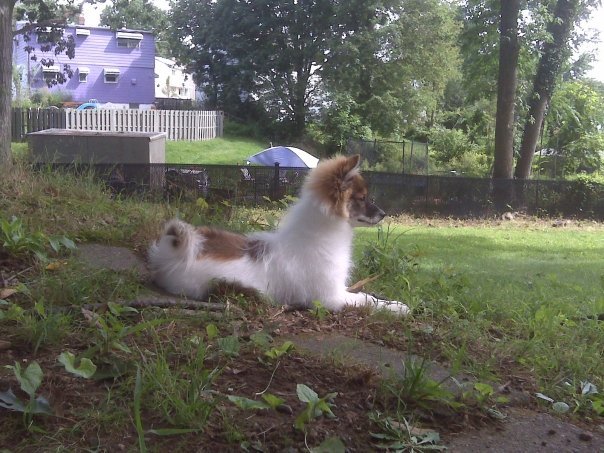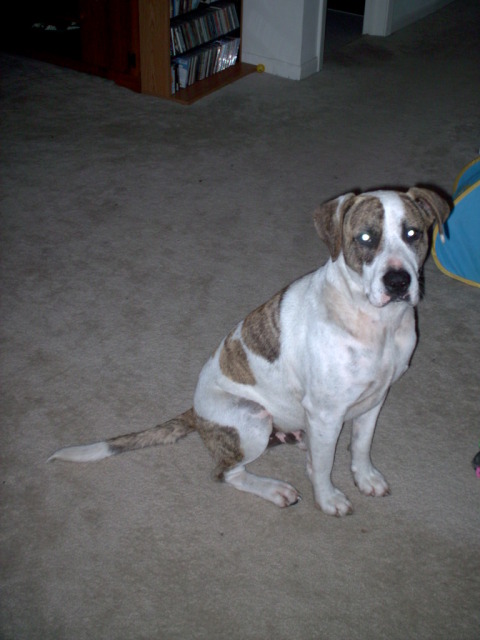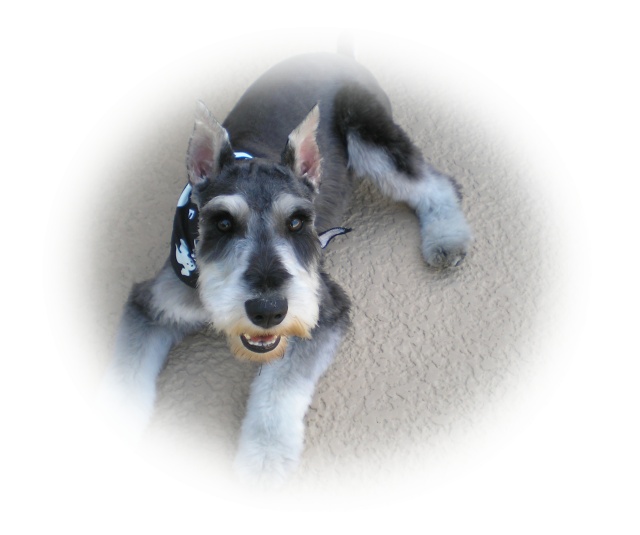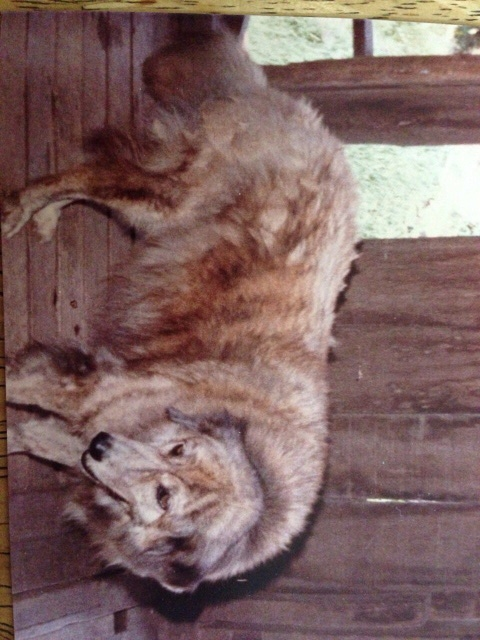QuestionMy girlfriend and I adopted a 1.5 year old Black & Tan Coonhound Mix a few days ago. He is very well behaved (doesn't bark often, is very gentle, and doesn't go to the bathroom in the house) but he seems a little reserved, timid, or depressed when in the apartment. I know he will take time to get comfortable but I noticed he is much more outgoing and playful with other dogs and seems to only come out of his shell at the dog run. He is hesitant to play with us and isn't active at all in the apt. He mostly lies around and walks very slowly. Any suggestions? Thanks so much for your time, help, and expertise!
AnswerDogs that spend too much of their life in a kennel, often are that way. It could be part of the reason he had to find a new home. Give him plenty of attention. This is meant for younger dogs, but do what you can with him.
''Elevation for small puppies: Sit on the floor and gently put your hands around your pup's middle, below his front legs, and lift him up. He is facing you. Hold him for 15 seconds. Repeat until he no longer struggles. If he is past 10-12 weeks, lift his front feet off the ground, but don't pick him up.
Cradling for small puppies: Hold your puppy gently on his back, as you would cradle a small baby. If he struggles, hold him firmly until he quiets for 10-15 seconds. With larger pups, you can do this as your sit on the floor, with your pup between your legs.
Quiet lying down: Place your pup on the floor on his side, with all 4 legs pointing away from you. Use your hands on his neck/shoulder area and middle, to hold him in this position. When he is quiet, praise him. Lengthen the time that you keep him quietly in this position. When he accepts this position well, handle his paws and muzzle, while keeping him quiet.''
The quotes mean this isn't my original work. It is copied from my Puppy Raising Manual. I have long used these or minor variations of them, and they are very effective. You may want to give him a belly rub while he is on his back too. Helps bonding. There is a big difference between him rolling over and demanding a belly rub, and you choosing a time to roll him over and rub his belly. The latter cements your place as pack leader.
You might do well to find some dogs books and do some reading about bonding with a dog.

 Proper diet for our Shitzus
Question
the two puppies (left)
Dear Patti;
I was nearl
Proper diet for our Shitzus
Question
the two puppies (left)
Dear Patti;
I was nearl
 Not sure what my dog is
Question
Ella
I adopted my dog through a rescue s
Not sure what my dog is
Question
Ella
I adopted my dog through a rescue s
 dog jumping fence
Question
dog
I have a 3 year old Staffordshire/Lab that
dog jumping fence
Question
dog
I have a 3 year old Staffordshire/Lab that
 mini-schnauzer limping not able to put full weight on leg
Question
Willy
A couple of hours ago, I walked my 14mon
mini-schnauzer limping not able to put full weight on leg
Question
Willy
A couple of hours ago, I walked my 14mon
 Identifying the breed
Question
Unknown Dog
Greetings Patti, I would li
Identifying the breed
Question
Unknown Dog
Greetings Patti, I would li